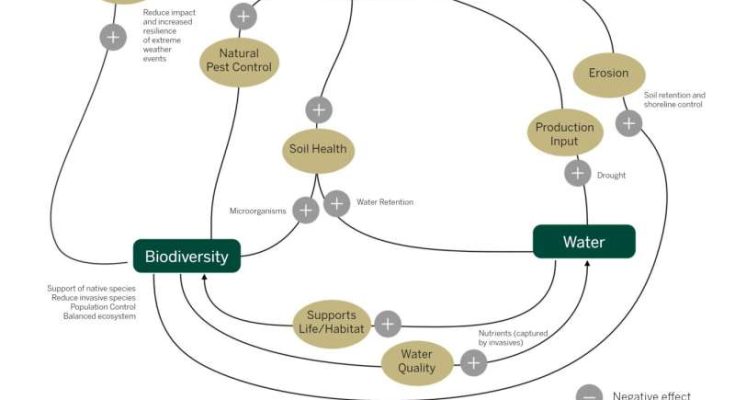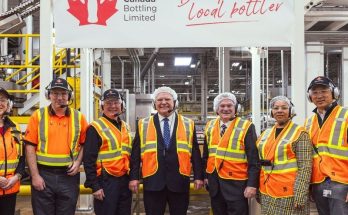A new report, Advancing Regenerative Agriculture in Canada: Barriers, Enablers, and Recommendations, led by Ivey professor Diane-Laure Arjaliès, founder and lead of the Ivey Sustainable Finance Lab researchers at Ivey Business School, offers evidence-based research, best practices, and critical recommendations for farming that supports ecosystems through natural agricultural principles, a method known as regenerative agriculture.
Arjaliès said in the report that an abundance of scientific research—both Western and Indigenous—was observed leading to the economic and ecological merits of regenerative agriculture.
Despite farmer consensus and widespread knowledge, the practice has not been established,
“Farmers want to have healthy land, see their yields increase over time, and do better for our resilience to climate change. But, when we look at the numbers, we don’t see a huge adoption of regenerative practices,” she said.
Once a longstanding, sustainable practice in Canada, the researchers said this type of agriculture was dominated by the industrial innovations due to population growth at the cost of environmental health and future yields.
While recognizing regenerative agriculture’s vast environmental and financial benefits, the report notes many farmers hesitate to adopt the approach due to perceived risks and challenges to shift away from industrial technologies, which are seen as essential for meeting current demands.
Implementing regenerative practices is also not a quick fix with clear timelines, the researchers point out due to particular challenge in a profession reliant on timing. Additionally, for the nearly half of Canadian farmers who rent their land, making multi-year investments in soil health and ecosystems poses a significant financial risk.
Following five key recommendations for stakeholders and rights holders throughout the food value chain had been made by the researchers to boost the widespread adoption of regenerative agriculture.
- The meaning and role of “regenerative agriculture” in current farming practices needs to be clarified
- Developing innovative instruments for agricultural production that value biodiversity
- An inclusive financial infrastructure, in cooperation with various actors across the entire food value chain, not just the farmers.
- A just transition by seeking perspectives such as Indigenous and racialized communities and migrant workers.
- Systems-level solutions by policy-makers, planners, financial services, and the agricultural industry that play a pivotal role in driving change.
In response to the report, and livestream panel event, Regenerative Agriculture: The Role of Finance & the Value Chain, as the second part of their Future of Agri-food Series was convened by the Ivey Academy and the Ivey Centre for Building Sustainable Value—where the Sustainable Finance Lab is hosted,
Moderated by the Ivey Academy’s Bryan Benjamin, the discussion addressed various ways of transforming regenerative agriculture to Canada’s food system.
Regenerative farming, said Arjaliès, is a key component in challenging climate change, and she is dedicated to advocating for its widespread adoption.
“Everyone benefits, everyone is committed to it, but no one is ready to change the business model, the value chain, and the valuation model to really prioritize this,” she said.
Arjaliès and her team at Ivey’s Centre for Building Sustainable Value will engage in Sept 2024 in an extensive new study with collaborators across the country to learn about the impact of innovation on regenerative agriculture practices.
Conducted as a large, randomized control trial, the study will aim to foster practices, collaborations, and test for increased adoption.
Arjaliès has also invited new partners to join the study.





